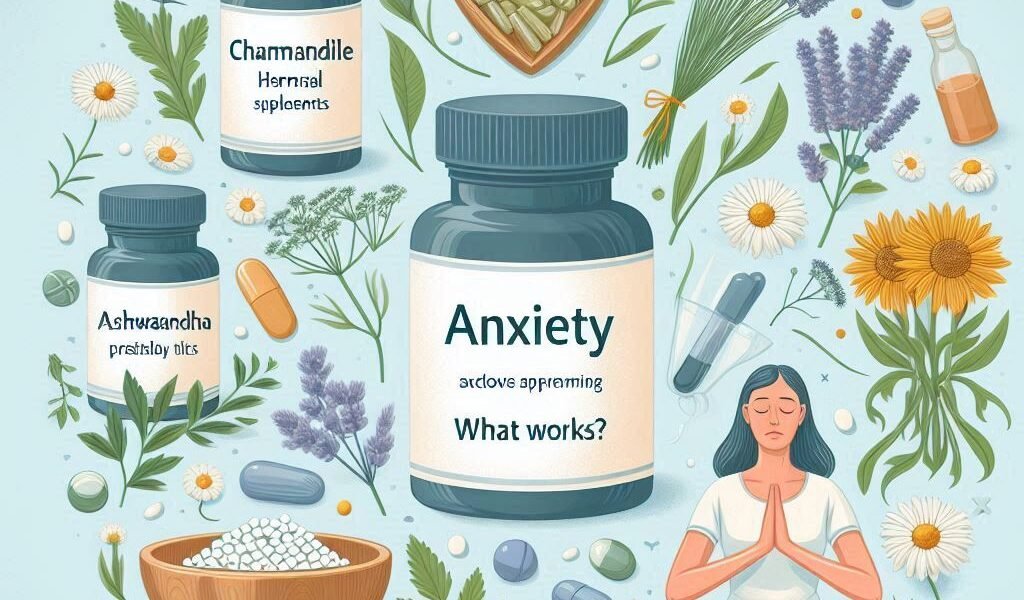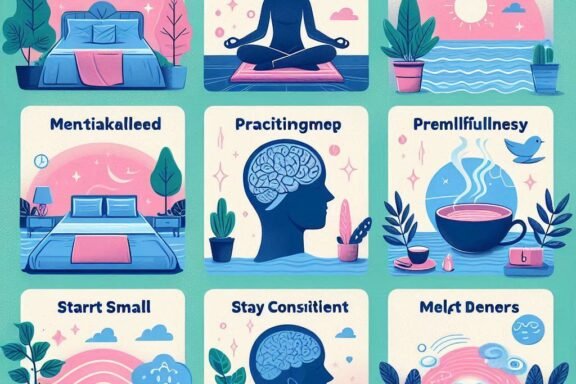Anxiety is something that almost everyone experiences at some point in their lives. Whether it’s a stressful work situation, a major life change, or even everyday worries, anxiety can become overwhelming. While traditional treatments like therapy and medication are effective for many, natural remedies can also play a significant role in managing anxiety. These remedies focus on harnessing the body’s ability to relax, reduce stress, and promote overall well-being. In this post, we’ll explore some natural remedies for anxiety, their benefits, and how you can incorporate them into your daily routine.
What is Anxiety?
Before diving into natural remedies, it’s important to understand what anxiety is. Anxiety is a natural response to stress, and it often presents itself as excessive worry, nervousness, or fear. It’s perfectly normal to feel anxious in situations that are unfamiliar or challenging, but when anxiety becomes persistent or overwhelming, it can interfere with daily life. Chronic anxiety may lead to physical symptoms like a rapid heart rate, sweaty palms, or trouble sleeping.
While severe anxiety often requires professional treatment, there are several natural remedies that can help reduce symptoms and improve overall mental health. Let’s take a look at some of the most effective natural options.
1. Herbal Supplements
Certain herbs have been used for centuries to help manage stress and anxiety. Some of the most popular herbs for anxiety relief include:
- Lavender: Known for its calming scent, lavender is often used in aromatherapy to reduce anxiety. Studies have shown that lavender can help lower anxiety levels and promote relaxation. You can use lavender essential oil in a diffuser, add a few drops to a warm bath, or even take lavender supplements.
- Chamomile: Chamomile tea is a well-known remedy for promoting relaxation and sleep. Chamomile has mild sedative effects that can help calm the nervous system and reduce feelings of anxiety. Drinking a cup of chamomile tea before bed can be especially helpful for those who struggle with anxiety-related insomnia.
- Ashwagandha: An adaptogenic herb, ashwagandha helps the body adapt to stress and balance cortisol (the stress hormone). Research suggests that ashwagandha can reduce anxiety and improve overall mood.
How to Use:
- Take herbal supplements according to recommended dosages or enjoy herbal teas in your daily routine. Always consult with a healthcare provider before starting any new supplement.
Why It Works: Herbal remedies work by promoting relaxation and reducing the physiological responses associated with stress. While they aren’t a cure for anxiety, they can be an effective part of a larger anxiety management plan.
2. Mindfulness and Meditation
Mindfulness and meditation have become widely recognized for their ability to help reduce anxiety. These practices focus on bringing your attention to the present moment, which can help quiet the mind and reduce worry. By practicing mindfulness, you train your brain to focus on the here and now rather than on anxious thoughts about the future.
How to Practice:
- Mindful Breathing: Close your eyes, take deep breaths in through your nose, and out through your mouth. Focus entirely on the sensation of your breath as it enters and leaves your body. This simple technique can help reduce feelings of anxiety in just a few minutes.
- Guided Meditation: Many apps and websites offer guided meditation specifically designed to reduce anxiety. These meditations usually involve soothing music or a calming voice guiding you through a series of relaxation techniques.
- Body Scan Meditation: This involves focusing on each part of your body from head to toe, noticing areas of tension, and consciously relaxing them. This practice helps ground you in the present moment and can reduce anxiety symptoms.
Why It Works: Mindfulness and meditation reduce the brain’s stress response, helping you to feel calmer and more centered. Research has shown that regular mindfulness practice can lead to long-term reductions in anxiety.
3. Physical Activity
Exercise is one of the most effective natural remedies for anxiety. When you exercise, your body releases endorphins—natural chemicals that help elevate your mood and reduce feelings of stress. Physical activity also helps to lower cortisol levels, which are elevated during periods of anxiety.
How to Use:
- Aim for at least 30 minutes of moderate exercise most days of the week. Activities like walking, jogging, yoga, or swimming can help release pent-up tension and improve your mood.
- Yoga and Tai Chi: These forms of exercise incorporate deep breathing and mindful movement, which can be especially helpful for reducing anxiety. They combine physical movement with relaxation techniques, making them a powerful tool for calming the mind.
Why It Works: Exercise boosts mood, reduces stress, and improves sleep quality, all of which contribute to reducing anxiety. It provides a natural way to cope with stress and prevent anxiety from escalating.

4. Breathing Exercises
Breathing exercises are simple, effective, and can be done anywhere. When you’re feeling anxious, your breathing often becomes shallow and rapid. By consciously slowing your breath, you can activate the body’s relaxation response, helping to calm your nervous system.
How to Practice:
- 4-7-8 Breathing Technique: Inhale quietly through your nose for 4 seconds, hold your breath for 7 seconds, and then exhale completely through your mouth for 8 seconds. Repeat this cycle for 4-5 times to help reduce anxiety and promote relaxation.
- Box Breathing: Inhale for 4 seconds, hold for 4 seconds, exhale for 4 seconds, and hold again for 4 seconds. Repeat this cycle several times to restore balance to your body’s nervous system.
Why It Works: Deep breathing helps activate the parasympathetic nervous system, which is responsible for relaxation. By focusing on your breath, you shift your focus away from anxious thoughts, leading to a sense of calm.
5. Diet and Nutrition
What you eat can also play a significant role in managing anxiety. Certain foods can either increase or decrease anxiety symptoms, so focusing on a balanced diet can help keep your body and mind in check.
What to Eat:
- Magnesium-rich foods: Magnesium has been shown to have calming effects on the nervous system. Foods like leafy greens, almonds, and avocados are good sources of magnesium.
- Omega-3 fatty acids: Omega-3s, found in fatty fish like salmon, can reduce inflammation and improve mood regulation. Studies have shown that omega-3s can help reduce anxiety and depression symptoms.
- Complex carbohydrates: Whole grains, legumes, and starchy vegetables help stabilize blood sugar levels, which can prevent the mood swings that may contribute to anxiety.
Why It Works: A balanced diet helps regulate neurotransmitters in the brain, which are directly linked to mood and anxiety. Eating nutrient-dense foods ensures your body has the tools it needs to manage stress effectively.
Conclusion
While anxiety is a natural response to stress, managing it can sometimes require more than just “getting over it.” Natural remedies such as herbal supplements, mindfulness, exercise, breathing techniques, and proper nutrition can complement other treatments and help you manage anxiety more effectively. While they may not eliminate anxiety entirely, these practices can provide relief and improve overall well-being. Always remember to consult with a healthcare provider before starting any new treatment regimen, especially if you have a preexisting condition or are already on medication. By integrating these natural remedies into your routine, you can take meaningful steps toward calming your mind and reducing anxiety.








No Comments